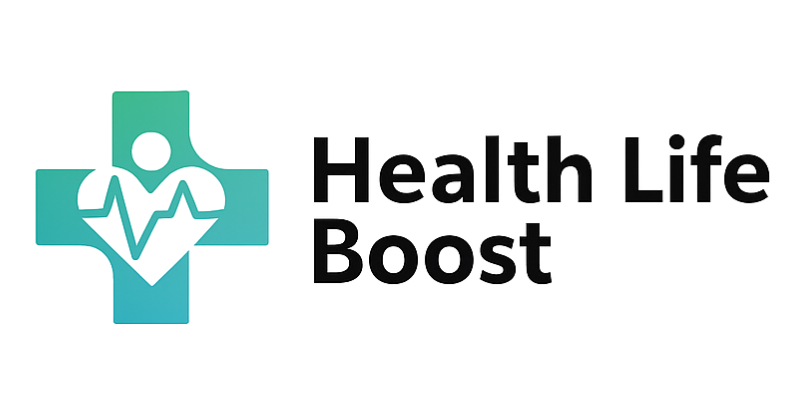If you’ve ever dreamed of making a real difference in people’s lives, women’s health RN jobs might be exactly what you’re looking for. A Women’s Health Registered Nurse (RN) focuses on supporting women through every stage of life — from adolescence and pregnancy to menopause and beyond. Unlike general nurses, women’s health RNs work closely with women’s health specialists, offering care that’s personal, emotional, and deeply rewarding.
These nurses are the backbone of OB/GYN departments, labor and delivery units, and women’s health clinics across the USA. They help patients understand their health, provide education about prenatal and postpartum care, and ensure that each woman feels heard and supported. It’s more than just a job — it’s a calling that blends compassion, skill, and heart.
You’ll often find women’s health RNs assisting during childbirth, helping with reproductive health check-ups, or providing emotional care to new mothers. Some even specialize further as labor and delivery RNs or OB/GYN nurses, focusing on childbirth and maternal wellness. Others move into community outreach or telehealth roles, helping women access care no matter where they live.
The demand for women’s health RN jobs in the USA is growing fast — and for good reason. With more focus on maternal health, preventive care, and patient education, hospitals and clinics need dedicated nurses who understand the unique needs of women. According to the latest data, the average RN salary in women’s health roles ranges from $70,000 to $110,000 per year, depending on experience, state, and certification.
So if you’re passionate about helping others and want a stable, fulfilling career, a women’s health nursing career could be your perfect fit. You’ll be part of a profession that not only heals bodies but also strengthens hearts and families. And that’s something truly powerful.
Common Job Titles in Women’s Health Nursing
When it comes to women’s health RN jobs, there’s no one-size-fits-all role. The beauty of this field is that you can choose a career path that matches your interests, lifestyle, and personality. Whether you love the fast pace of a hospital or the calm environment of a clinic, there’s a perfect fit waiting for you.
Let’s take a closer look at some of the most popular job titles you’ll come across in a women’s health nursing career:
1. OB/GYN RN (Obstetrics and Gynecology Nurse)
These nurses work side by side with doctors in hospitals and clinics, helping women through pregnancy, childbirth, and reproductive health challenges. As an OB/GYN RN, you might assist during exams, monitor fetal heart rates, and educate patients about prenatal and postnatal care.
2. Labor and Delivery Nurse
This is one of the most exciting and emotional roles in nursing. Labor and delivery nurses help mothers bring new life into the world. From monitoring contractions to offering emotional support during labor, they are there for every step of the birth journey. It’s intense, but incredibly rewarding.
3. Postpartum RN
Once a baby is born, postpartum nurses step in to care for both the mother and the newborn. They teach new moms how to breastfeed, recover from delivery, and handle newborn care. They’re like the guiding light for families starting a new chapter.
4. Prenatal Nurse
Prenatal nurses focus on the care of women during pregnancy. They monitor health, educate mothers-to-be about nutrition and safety, and help detect potential complications early. It’s all about keeping both mom and baby healthy.
5. Women’s Health Clinic Nurse
If you enjoy steady schedules and strong patient relationships, becoming a clinic nurse in a women’s health center might be ideal. You’ll provide screenings, assist in gynecological exams, and guide patients through preventive care.
Each of these roles offers a unique way to make a difference. And with so many opportunities available across the USA, there’s no shortage of ways to build a rewarding and meaningful career in women’s health nursing.

Typical Duties & Responsibilities of a Women’s Health RN
If you’re wondering what life looks like in women’s health RN jobs, picture this: every day is different, meaningful, and full of human connection. Whether you’re holding a new mother’s hand during delivery or explaining health options to a young woman at her first clinic visit, your work truly matters.
A women’s health registered nurse (RN) plays a vital role in helping women stay healthy and informed. Here are some of the core responsibilities that define this rewarding profession:
1. Patient Care and Education
A big part of being a women’s health RN is teaching. You’ll educate women about reproductive health, pregnancy, postpartum care, and preventive screenings. This includes explaining things like birth control options, prenatal nutrition, and regular checkups — all in a way that’s comforting and easy to understand.
2. Assisting in Procedures
From Pap smears to prenatal ultrasounds, OB/GYN nurses assist doctors during medical exams and minor procedures. Your calm presence and expertise help patients feel safe and supported, especially during sensitive moments.
3. Monitoring and Assessing Patients
Labor and delivery RNs monitor vital signs, fetal heart rates, and signs of labor progression. You’ll learn to recognize early warning signs of complications and act fast — making a real difference in outcomes for both mother and baby.
4. Supporting Emotional Health
Beyond physical care, women’s health nurses provide emotional support. Many women face fear, anxiety, or uncertainty during pregnancy or health treatments. Your compassion and reassurance can help them feel calm, understood, and empowered.
5. Coordinating Care
As part of a larger healthcare team, you’ll work closely with doctors, midwives, social workers, and therapists to make sure every woman gets holistic care. Good communication and organization are key nursing skills that keep everything running smoothly.
In short, being a women’s health RN means combining medical expertise with heart. It’s about helping women through every stage of life
Where Do Women’s Health RNs Work?
One of the best things about women’s health RN jobs is the variety of places you can work. Whether you prefer the buzz of a hospital or the calm of a small clinic, there’s a work setting that fits your style. Nurses in this field aren’t limited to one environment — they’re needed almost everywhere women receive care across the USA.
Here are some of the most common and rewarding places where Women’s Health Registered Nurses build their careers:
1. Hospitals
Many OB/GYN RNs and labor and delivery nurses work in hospitals, especially in maternity wards or birthing centers. These roles are fast-paced and full of energy. You’ll assist in childbirth, monitor patients, and work as part of a tight-knit medical team. It’s challenging — but seeing a new life come into the world makes it all worth it.
2. Women’s Health Clinics
If you like a steady schedule and a more personal connection with patients, women’s health clinics are a great choice. You’ll help with routine exams, family planning, fertility counseling, and preventive screenings. This role often allows you to follow up with patients long-term, which many nurses find deeply fulfilling.
3. Community Health Centers
Some women’s health RNs work in public or nonprofit clinics that serve women from all walks of life. These nurses often focus on education and outreach — teaching women about reproductive health, safe pregnancy, and disease prevention. It’s meaningful work that makes a real difference in the community.
4. Telehealth and Remote Nursing
Modern technology has opened new doors for telehealth nursing. Many nurses now support patients online or by phone, providing education and follow-up care remotely. This is ideal if you want flexibility or prefer working from home. It’s also one of the fastest-growing nursing jobs in the USA.
5. Private Practices and Fertility Centers
OB/GYN RNs and clinic nurses often work with private doctors or fertility specialists. These settings are quieter, with smaller patient loads, allowing for focused and personalized care.
No matter where you work, being a women’s health nurse means being part of something bigger — empowering women, promoting wellness, and helping families thrive.
Salary & Job Outlook for Women’s Health RNs in the USA
If you’re thinking about women’s health RN jobs, one of the first questions you’ll ask is: How much can I make? Good question. Let’s break it down — salary ranges, what impacts pay, and whether demand is growing.
Average Salary Ranges
- A women’s health nurse in the U.S. makes, on average, $80,321 per year, or about $38.62 per hour according to ZipRecruiter. ZipRecruiter
- Another estimate shows the average around $99,814 annually, or $47.99/hour, depending on experience and location. ZipRecruiter
- In Washington State, women’s health nurses earn about $89,520/year (≈ $43/hour), higher than the national average. Incredible Health
- For OB/GYN nurses specifically, salaries tend to be higher; one source lists $52.05/hour as an average rate for OB/GYN nursing. Vivian Health
So, depending on your city, role (clinic, hospital, L&D), and experience, your pay could be somewhere between $60,000 to over $120,000+ annually.
Job Outlook: Demand, Growth & Opportunity
Good news: the field is growing.
- The U.S. Bureau of Labor Statistics (BLS) projects employment for registered nurses overall to grow 5% from 2024 to 2034 — faster than average. Bureau of Labor Statistics+1
- Many of those new RN positions will be in specialties, like women’s health, particularly as demand increases for maternal care, reproductive services, and preventive women’s wellness.
- The nursing workforce fact sheet notes that growth is propelled by an aging population, chronic disease rates, and emphasis on preventive care. aacnnursing.org
- Also, increases in telehealth and remote care models are opening new roles in the women’s health nursing space.
What Influences Your Pay?
Several factors can push your salary higher (or lower):
- Location / State: High cost-of-living states often pay more (for example, Washington had above-average wages). Incredible Health
- Role / Setting: Working in labor & delivery, large hospitals, or for high-demand clinics often brings premium wages.
- Experience & Certifications: Special credentials, advanced skills, or years on the job often mean higher pay.
- Type of employment: Travel and per diem roles often pay more hourly than standard clinic jobs.
- Demand & competition: In regions with a shortage of women’s health RNs, employers may offer incentives to attract talent.
✅ Why This Matters to You
If you’re planning a women’s health nursing career, know that the salary potential is strong, and growth is solid. But your earnings will depend heavily on your choices — where you live, what specialty you choose (OB/GYN, L&D, clinic, telehealth), and what extra skills or certifications you bring to the table.
In short: the demand is real, the rewards can be great, and your effort in choosing wisely can make a big difference.
How to Become a Women’s Health RN
If you’re inspired by the idea of helping women through every stage of life, you might be wondering — how do I actually become a Women’s Health RN?
Good news: the path is clear, and with some dedication, you can build a fulfilling and well-paid career in women’s health nursing.
Let’s walk through it step by step. 👇
1. Earn Your Nursing Degree
Your journey begins with education. You’ll need to complete either an Associate Degree in Nursing (ADN) or a Bachelor of Science in Nursing (BSN).
While both options allow you to become a registered nurse, a BSN is preferred by most employers and opens the door to leadership or specialized roles — including OB/GYN RN positions.
🩺 Pro tip: Choose a nursing school that offers clinical rotations in women’s health or labor and delivery. This hands-on experience will give you a strong foundation right from the start.
2. Pass the NCLEX-RN Exam
After graduating, you must pass the NCLEX-RN — a national licensing exam that officially certifies you as a Registered Nurse in the USA.
It’s the big step that separates nursing students from licensed professionals. Don’t worry — with the right prep, you’ve got this!
3. Gain Clinical Experience
Once you’re licensed, it’s time to get experience. Many nurses start in general medical units, then move into women’s health RN jobs once they’ve built confidence.
Try to shadow or work with an OB/GYN nurse or labor and delivery RN to get a feel for the work environment. The more hands-on experience you have, the stronger your resume becomes.
4. Get Certified in Women’s Health
While not always required, certifications help you stand out. You can earn credentials like:
- RNC-OB (Inpatient Obstetric Nursing)
- RNC-MNN (Maternal Newborn Nursing)
- WHNP-BC (Women’s Health Nurse Practitioner – for advanced degrees)
These show employers that you’re serious about your specialty — and can often boost your salary.
5. Keep Learning & Growing
Healthcare is always changing. Stay current by attending workshops, webinars, and continuing education courses. The best women’s health nurses never stop learning — and that’s what makes them so valuable.
6. Apply for Women’s Health RN Jobs
Once you’re certified and ready, start exploring nursing jobs in the USA that match your interests — hospitals, women’s health clinics, telehealth platforms, or community care centers.
Tailor your resume with strong keywords like “OB/GYN RN”, “labor and delivery nurse”, and “women’s health registered nurse” to catch employers’ attention.
Becoming a women’s health RN isn’t just about earning a degree — it’s about building a career that empowers women and strengthens families. It takes heart, skill, and dedication — but the result is one of the most meaningful jobs in healthcare.
Top Employers Hiring Women’s Health RNs in the USA
So, you’ve earned your RN certification, gained experience, and are now ready to land one of the best women’s health RN jobs in the country. But where should you start? 🤔
The good news is — the demand for women’s health registered nurses is strong across the United States, from major hospitals to private clinics and telehealth companies. Let’s look at some of the top employers where your skills can truly shine.
1. Major Hospitals and Health Systems
Big hospitals are often the best places to grow your nursing career — especially if you’re passionate about women’s health or OB/GYN care.
Top Picks:
- Mayo Clinic (Rochester, MN) – Known for world-class healthcare and cutting-edge women’s health departments. Offers excellent career advancement and continuing education.
- Cleveland Clinic (Cleveland, OH) – One of the leading employers for labor and delivery nurses and women’s health RNs.
- Johns Hopkins Hospital (Baltimore, MD) – Provides specialized programs in maternal-fetal medicine, neonatal care, and women’s reproductive health.
- Cedars-Sinai Medical Center (Los Angeles, CA) – Famous for its advanced obstetric care and high nurse-to-patient ratio.
Working at these hospitals gives you exposure to diverse cases and an opportunity to collaborate with top medical professionals.
2. Women’s Health Clinics and OB/GYN Practices
If you prefer a more personal environment, women’s health clinics and OB/GYN offices are excellent options.
These facilities focus on reproductive health, prenatal care, and wellness — allowing you to build long-term relationships with patients.
Examples:
- Planned Parenthood Federation of America – Offers nursing jobs in reproductive and sexual health nationwide.
- The Women’s Health Group (Multiple States) – Known for holistic women’s wellness programs.
- Comprehensive Women’s Health Clinics – Found across major U.S. cities; these clinics often hire registered nurses with experience in OB/GYN care.
3. Telehealth & Remote Nursing Opportunities
Thanks to technology, remote nursing jobs are on the rise — even in women’s health.
If you love flexibility and want to help women from the comfort of your home, this could be perfect for you.
Top Telehealth Employers:
- Wheel Health
- Amwell
- Teladoc Health
- PlushCare
These companies hire telehealth RNs to assist women with pregnancy support, birth control counseling, and postpartum care online.
4. Government & Community Health Programs
Government agencies and nonprofits also offer valuable opportunities for women’s health nurses — especially for those passionate about community service.
Leading Employers:
- U.S. Department of Veterans Affairs (VA) – Provides women’s healthcare programs for female veterans.
- Public Health Departments – Offer nursing jobs in maternal health and preventive care.
- Nonprofit Organizations – Like March of Dimes or Susan G. Komen Foundation, which hire nurses for education, outreach, and care programs.
5. Educational & Research Institutions
If you enjoy academics or research, consider joining universities or research hospitals that focus on women’s health innovations.
These roles often combine patient care with teaching or conducting clinical studies.
Examples:
- Stanford Health Care
- University of Pennsylvania Health System
- Duke University Medical Center
Such roles can lead to career paths in clinical research, education, or nurse leadership.
Quick Tip:
When applying, always tailor your resume with keywords like “women’s health RN,” “OB/GYN nurse,” “labor and delivery RN,” or “reproductive health nurse.”
This makes your application stand out to employers and ATS systems (Applicant Tracking Systems).
Final Thoughts:
Whether you dream of working in a hospital delivery unit, a women’s health clinic, or through telehealth platforms, the U.S. job market offers abundant and rewarding opportunities for registered nurses in this field.
The best part? Every day, you’ll make a real difference in women’s lives — from supporting new mothers to guiding women through life-changing health decisions.
Salary Expectations & Job Outlook for Women’s Health RNs in the USA
If you’re thinking about women’s health RN jobs, knowing how much you can earn and whether the field is growing is key. Let’s dig into typical salaries, what affects pay, and where this specialty is heading in the U.S.
Typical Salary Ranges for Women’s Health / OB/GYN RNs
- According to Vivian Health, OB/GYN nurses make on average $52.05 per hour in the U.S. Vivian Health
- In New York City, an OB/GYN RN salary is about $43.78/hour, which is around $91,000/year ZipRecruiter
- Zippia reports an average OB/GYN nurse salary of $84,626/year (≈ $40.69/hour), with a range from $48,000 up to $148,000 Zippia
- For specialized roles like travel OB/GYN RN, weekly earnings average $2,490/week (which is higher than many standard RN roles) Vivian Health
- Some sources place OB/GYN RN salary in broader ranges: $61,520 median in certain data sets, with variability depending on region and role Nursejournal.org
So, depending on your experience, location, and setting, your pay could land anywhere from $60,000 to over $120,000+.
Job Outlook & Growth Trends
- The U.S. registered nurse field overall is projected to grow about 5% from 2021 to 2031 aacnnursing.org
- For labor & delivery roles, demand remains strong even with fluctuating birth rates — there will always be childbirths to support engage.healthtrustjobs.com
- More broadly, the nursing shortage in the U.S. continues — with growing populations, aging demographics, and more healthcare access — so specialties like women’s health nursing are likely to feel that demand strongly Wikipedia+1
What Impacts Your Pay in Women’s Health RN Jobs
Several factors affect how much you’ll actually take home:
- Location / state — Urban, high-cost areas often pay more.
- Setting — Hospitals, hospitals with teaching programs, and specialty clinics often offer higher pay.
- Experience & seniority — More years in the field generally means higher pay.
- Certifications / advanced skills — Certifications like RNC-OB, comfort in fetal monitoring, maternal health skills, etc.
- Type of Position — Travel, per diem, or contract roles often give higher hourly pay but less stability.
- Shift differentials — Night, weekend, or holiday shifts often yield premium pay.
What This Means for You
If you aim for women’s health RN jobs, you’re stepping into a specialty with solid earning potential and ongoing demand. Your salary will depend heavily on where you work, how many certifications you collect, and how far you’re willing to go (e.g. travel or specialty roles).
Because the RN field is growing, and because women’s health is increasingly prioritized in healthcare systems, you’re looking not just at a paycheck — but at a stable, meaningful lifetime of work.
Top Certifications, Skills & Advantages for Women’s Health RNs (USA)
If you want to stand out in the world of women’s health RN jobs, having the right mix of skills and certifications can make all the difference. Not only do they boost your confidence and knowledge, but they also make you more appealing to employers — and yes, often lead to higher paychecks. 💰
Let’s break down what you can do to level up your nursing career in women’s health.
Top Certifications for Women’s Health Registered Nurses
While becoming a Registered Nurse (RN) is your foundation, adding specialized certifications can help you land the best OB/GYN nursing or labor and delivery RN roles in the U.S.
Here are some of the most valuable certifications to consider:
- RNC-OB (Inpatient Obstetric Nursing)
- Offered by the National Certification Corporation (NCC).
- Ideal for nurses working in labor and delivery, antenatal, or postpartum units.
- Recognized nationwide and can raise your professional profile.
- Offered by the National Certification Corporation (NCC).
- RNC-MNN (Maternal Newborn Nursing)
- Perfect if you want to specialize in caring for new mothers and newborns.
- Common among nurses in postpartum and neonatal departments.
- Perfect if you want to specialize in caring for new mothers and newborns.
- RNC-LRN (Low-Risk Neonatal Nursing)
- Focuses on newborn care and development.
- Great for nurses who love working with infants and supporting parents.
- Focuses on newborn care and development.
- WHNP-BC (Women’s Health Nurse Practitioner – Board Certified)
- Advanced-level certification for those pursuing a Master’s or DNP degree.
- It allows you to diagnose, prescribe, and manage women’s health issues independently.
- Advanced-level certification for those pursuing a Master’s or DNP degree.
- C-EFM (Electronic Fetal Monitoring Certification)
- A must for labor and delivery nurses.
- Proves your expertise in monitoring fetal health during childbirth.
- A must for labor and delivery nurses.
Essential Skills Every Women’s Health RN Needs
Besides certifications, employers also look for practical skills — the kind that show you’re both knowledgeable and compassionate.
Here are the top must-have skills for women’s health registered nurses:
- Patient Education: Guiding women through pregnancy, postpartum recovery, and preventive health.
- Empathy and Communication: Building trust and helping patients feel heard and understood.
- Clinical Skills: Administering medications, conducting exams, and supporting OB/GYN procedures.
- Fetal Monitoring & Labor Support: Knowing how to assist during childbirth safely.
- Team Collaboration: Working with physicians, midwives, and other nurses.
- Documentation & Charting: Keeping accurate, detailed patient records — a critical part of any nursing job.
The Advantages of Specializing in Women’s Health Nursing
Choosing a path in women’s health nursing isn’t just a job — it’s a calling. Here’s what makes it so rewarding:
- Emotional Fulfillment: You’re helping women through major milestones like childbirth, fertility, and recovery.
- 📈 Career Growth: With the right certifications, you can move into advanced roles or become a women’s health nurse practitioner.
- Variety of Settings: From hospitals to telehealth platforms, you can work in environments that match your lifestyle.
- Strong Earning Potential: Certified and experienced RNs often earn 15–25% more than non-certified nurses.
- Meaningful Impact: You directly contribute to women’s well-being and public health — one patient at a time.
How to Start Your Career as a Women’s Health RN (Step-by-Step Guide)
Dreaming of a rewarding career helping women through every stage of life — from pregnancy to wellness and beyond? 🌸 Becoming a Women’s Health Registered Nurse (RN) might just be your perfect path.
Here’s your simple, step-by-step guide to landing one of the best women’s health RN jobs in the USA.
Step 1: Earn Your Nursing Degree
Every journey starts with education.
You’ll need to complete one of the following nursing programs:
- Associate Degree in Nursing (ADN): Takes about 2 years — the fastest route to becoming a registered nurse.
- Bachelor of Science in Nursing (BSN): Takes around 4 years and offers more career options, leadership potential, and higher pay.
Step 2: Pass the NCLEX-RN Exam
Once you finish nursing school, it’s time to prove your knowledge by passing the National Council Licensure Examination (NCLEX-RN).
Passing this exam officially earns you your RN license, allowing you to work legally as a nurse in the U.S.
Step 3: Gain Experience in Women’s Health
Start by working in areas where you’ll get hands-on experience with women’s health and maternity care, such as:
- Labor and delivery units
- Postpartum wards
- Women’s health clinics
- OB/GYN practices
This real-world experience helps you build clinical skills, confidence, and a deep understanding of women’s physical and emotional needs.
Step 4: Get Certified in Women’s Health Specialties
After gaining experience, take your career a step further with advanced certifications such as:
- RNC-OB (Inpatient Obstetric Nursing)
- RNC-MNN (Maternal Newborn Nursing)
- C-EFM (Electronic Fetal Monitoring)
- WHNP-BC (Women’s Health Nurse Practitioner – Board Certified)
These certifications boost your credibility and often come with higher pay and leadership opportunities.
Step 5: Apply for Women’s Health RN Jobs
Now you’re ready to step into the field! 🎉
Start applying for positions such as:
- OB/GYN Nurse
- Labor and Delivery RN
- Women’s Health Clinic Nurse
- Telehealth RN (Women’s Health)
Search for nursing jobs in the USA on trusted platforms like:
- Indeed
- LinkedIn
- Glassdoor
- Nurse.com
- Health eCareers
Remember to tailor your resume using strong keywords like “women’s health RN,” “OB/GYN nurse,” and “labor and delivery nurse” — this helps your application stand out to hiring systems.
Step 6: Continue Learning and Growing
Healthcare is always evolving, and so should you!
Attend workshops, pursue continuing education courses, or even explore a master’s program if you’re aiming to become a Women’s Health Nurse Practitioner (WHNP).
The more you learn, the more opportunities you’ll have — both professionally and financially.
Final Thoughts
Starting your journey as a Women’s Health RN is more than a career — it’s a calling.
You’ll support women through some of the most important moments of their lives, offer comfort, and make a difference every single day.
With the right education, experience, and passion, you can build a fulfilling, stable, and impactful career in one of the most respected areas of nursing.




